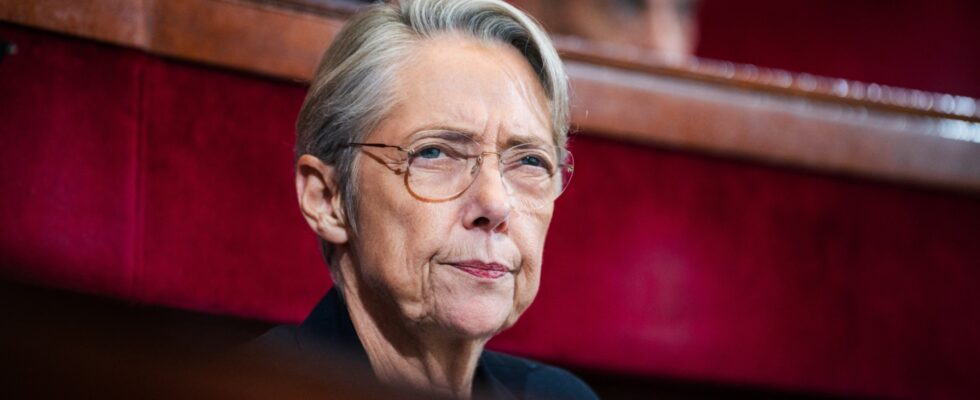A return to the Palais-Bourbon, but no longer on the benches of government: former Prime Minister Elisabeth Borne returns to the National Assembly on Tuesday as a simple member of the majority, like several ministers disembarked during the reshuffle. A little over a month after leaving Matignon, the former head of government is expected at the meeting of the Renaissance group at 10:30 a.m., then at the question session with the government at 3 p.m. She regains her seat as deputy for the 6th constituency of Calvados, where she was elected in June 2022, immediately giving way to her deputy Freddy Sertin.
Elisabeth Borne “never sat” in the Assembly. “She has things to learn,” smiles a colleague. Is she ready to travel across her constituency or to go through successive sessions in the Assembly to try to pass amendments with little chance of success? “When I have a mission, a function, it’s in my DNA to do it to the fullest,” she promised on France 3 Normandie. “I have never been fascinated by power (…) I will continue to put a lot of energy into my political commitment”, she assured, during this interview organized “Au real Normand”, a restaurant in Villers-Bocage (Calvados).
Foreign Affairs Committee
At her request, Elisabeth Borne will sit on the Foreign Affairs Committee, like the former government spokesperson Olivier Véran, while Olivier Dussopt, former Minister of Labor, will join the Defense Committee. In this new role, she will find the unchanged configuration of the National Assembly in relative majority. This seething hemicycle which had worn her out and in which she had resorted 23 times to the constitutional weapon of 49.3 to pass budgets and pension reform without a vote.
In total, around ten former members of the government will become simple deputies again, notably Bérangère Couillard, Clément Beaune, Carole Grandjean, Philippe Vigier, Agnès Firmin-Le Bodo and Olivier Becht.
“Active, we’ll see”
At the Palais-Bourbon, some have little faith in their involvement in the coming months. “I feel they are very absent, I think that they will come very little, and that they will all leave for other skies as soon as they can,” predicts an executive from the Renaissance group. With some precedents in mind, the former socialist Prime Ministers Jean-Marc Ayrault or Manuel Valls, who had not completed their mandates after their return to the Assembly. “Active, we’ll see,” slips a former minister, who does not intend to “do all the sessions at night.”
At the head of the Renaissance deputies, Sylvain Maillard is delighted with these arrivals of several heavyweights, in a group which is sorely lacking. “It is an opportunity for the group because of their experience”, an “opportunity for strengthening”, he underlines, despite the logistical “puzzle” of finding offices which are suitable for new arrivals. Could certain former ministers who have landed, like Clément Beaune, try to form a group on the left wing of the majority? “There is no such thing as a subgroup, it’s a political death,” says Sylvain Maillard, who “absolutely doesn’t think they are in this state of mind.”
But within the Renaissance group, elected officials from the left wing find the composition of the new government too right-wing. And did not appreciate the exit of Gabriel Attal, who wants to work with “everyone” in the Assembly including with the RN, because “the republican arc is the hemicycle”. A change in doctrine compared to Elisabeth Borne, who repeatedly excluded RN and LFI from this “republican arc”.
